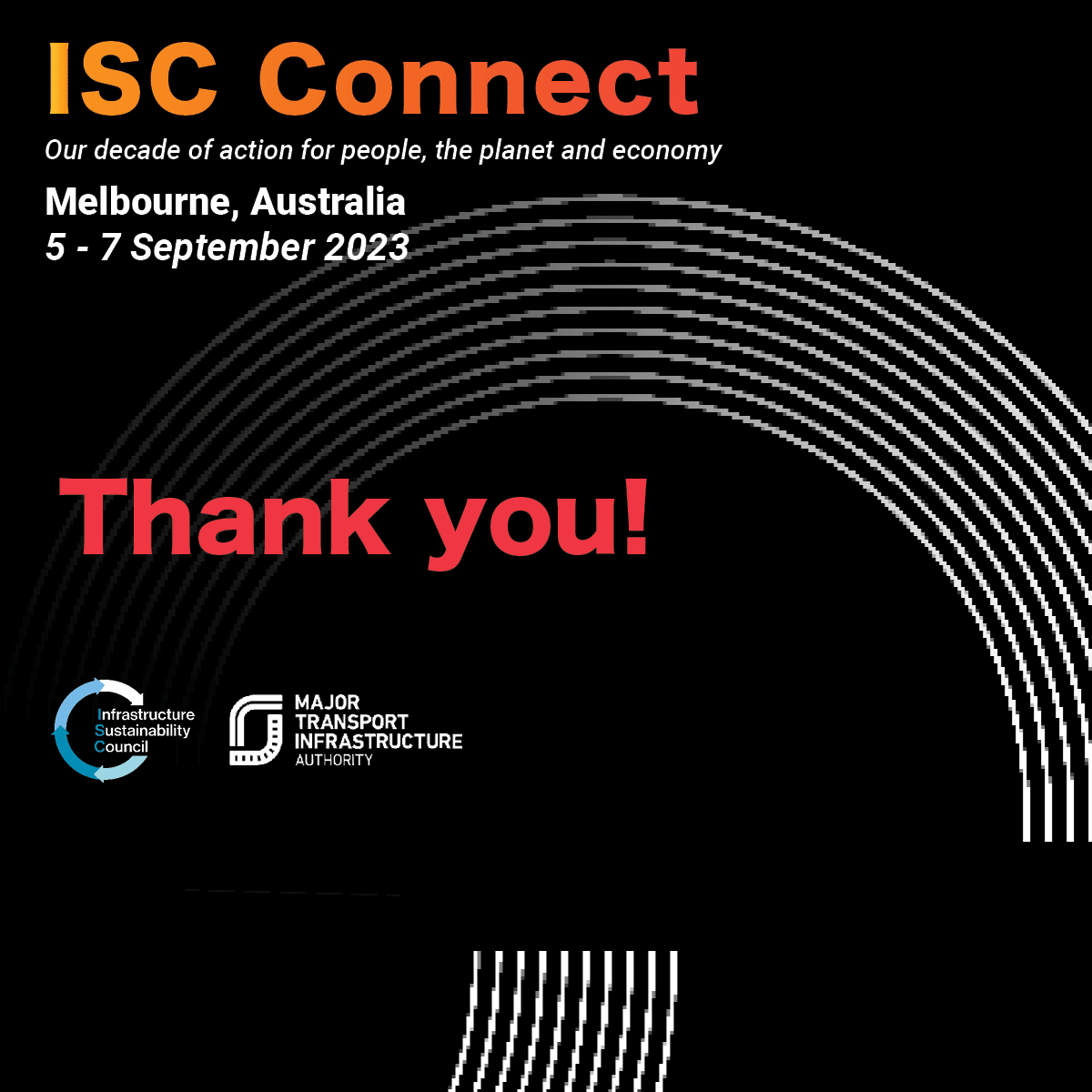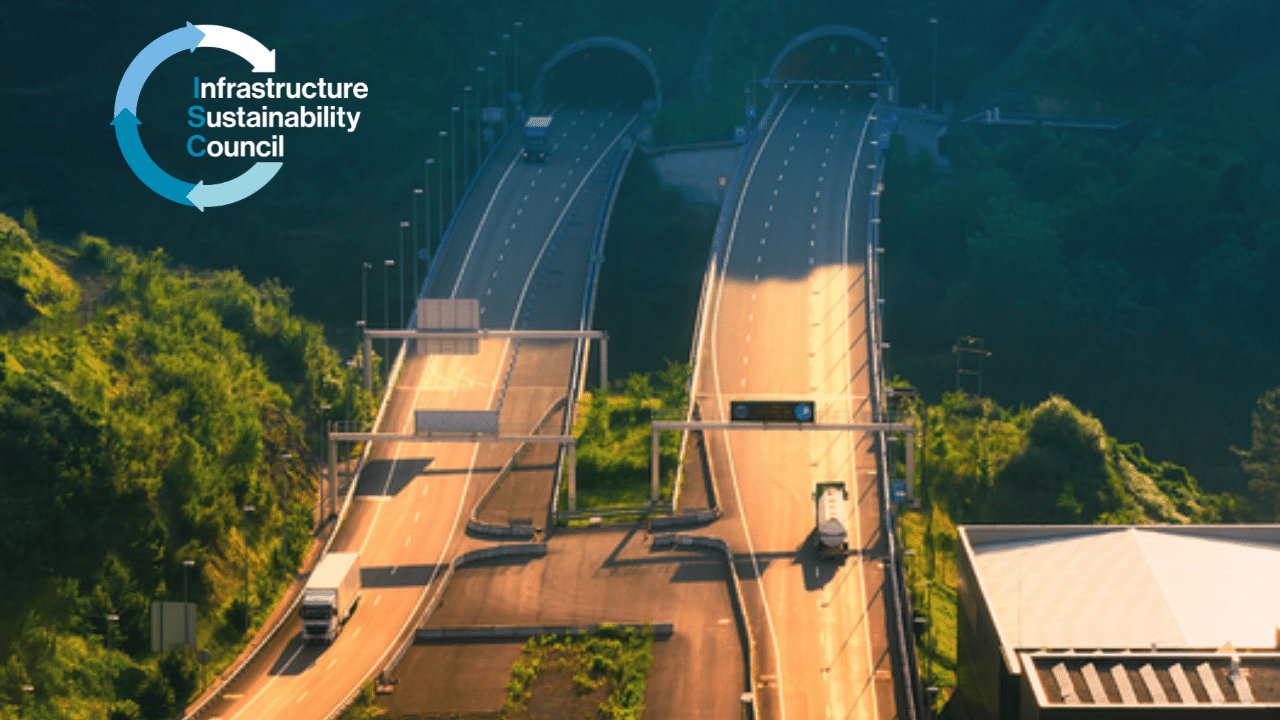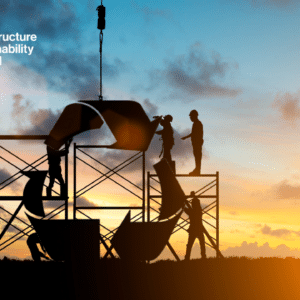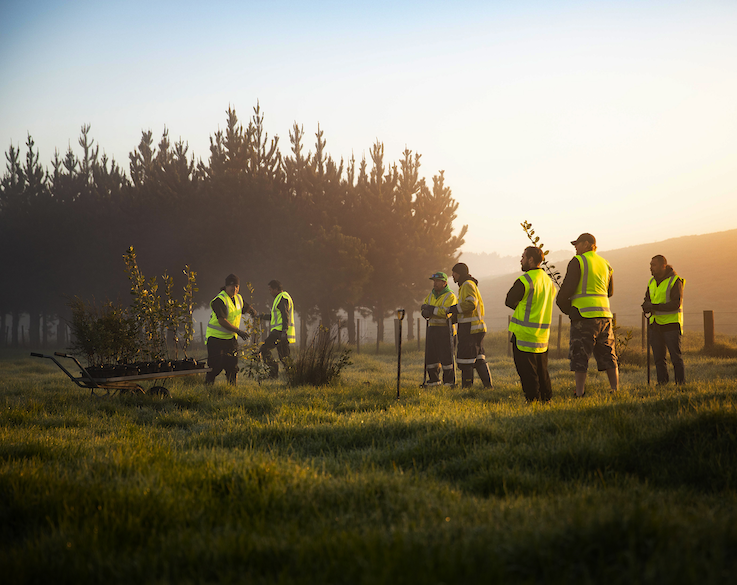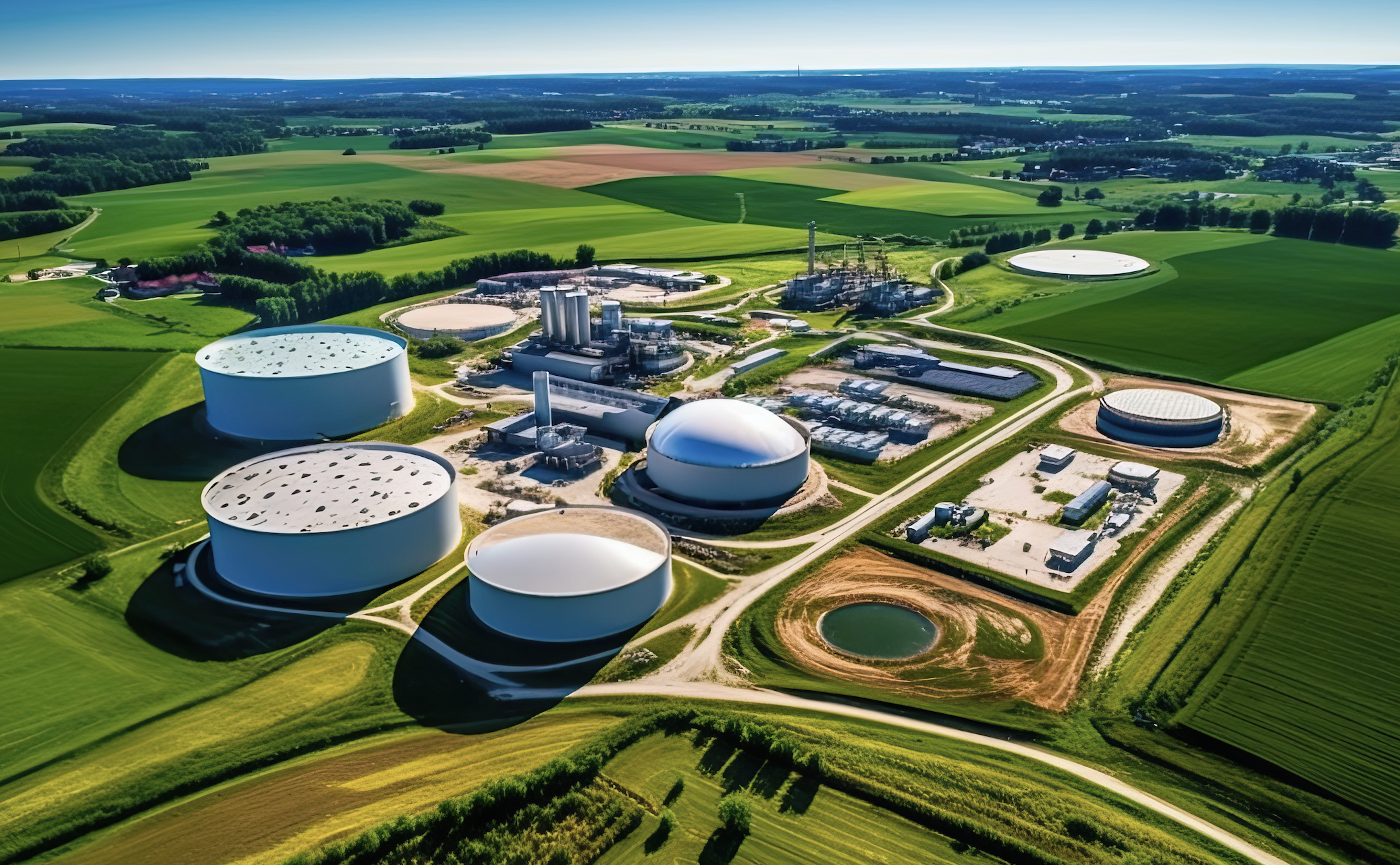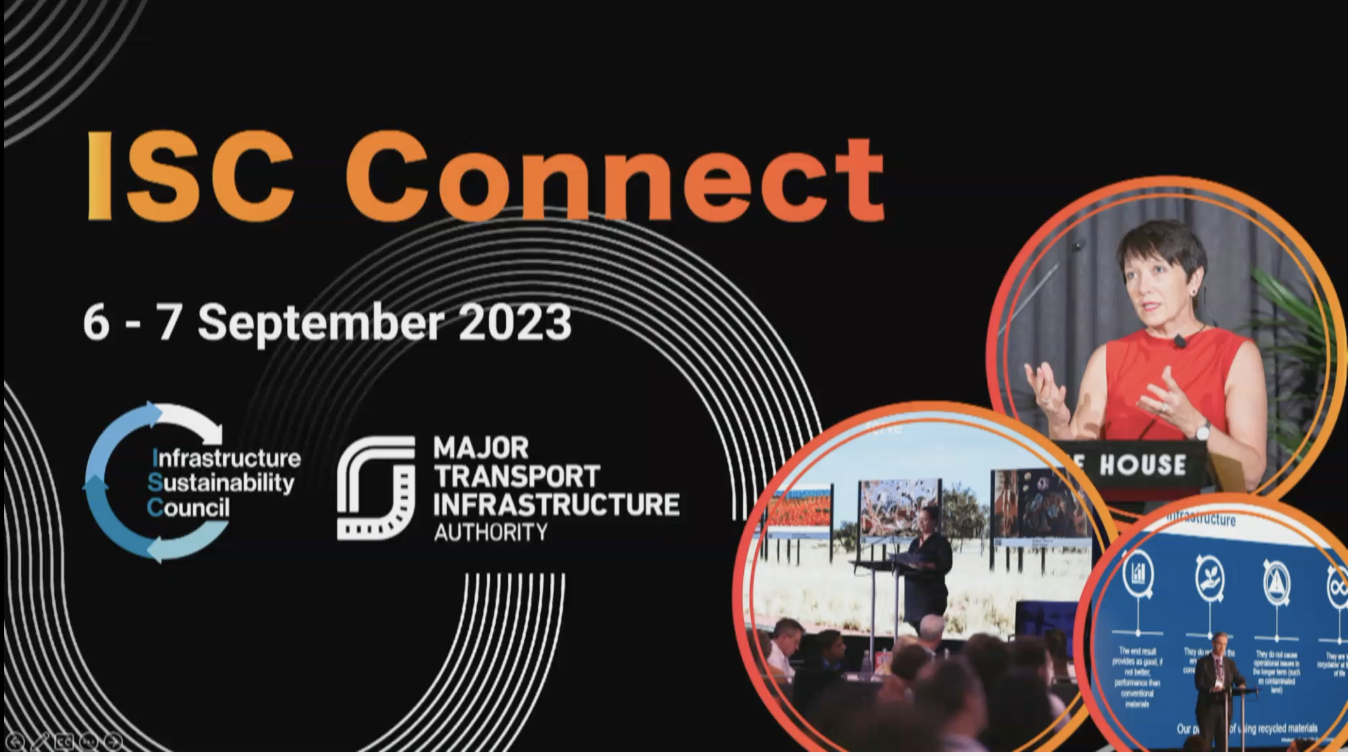“Our decade of action for people, the planet and the economy…”
Reflections on “ISC Connect”, your Infrastructure Sustainability Council’s yearly conference, held on Naarm country (Melbourne), from 5-7 September, 2023.
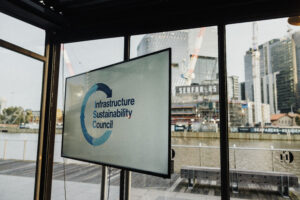
If the strength of our relationships and the ways our actions have impact are the litmus tests of success; and if history tells us we make greater impact, faster, when we collaborate… by those terms, we can confidently call the thousand -strong cohort of intentional individuals who participated in Connect 2023, “truly successful people”.
Together, in a jam-packed 72-hours, you gave the world a push, and helped propel this planet a little further along its trajectory into our more sustainable future. For that, we at the ISC offer our hearty thanks.
Thanks, importantly, must in equal measure go to our major sponsors MRPV (MTIA), Ventia, CPB Contractors, Bluescope & Bluescope Steel, John Holland Group, Acciona, GHD, Holcim, InfraBuild, Mott McDonald, Laing O’Rourke, Gamuda, Perspektiv and WSP; as well as our many session sponsors, Gala and Awards Dinner and associated function sponsors, and to our venues, suppliers, members, partners, and friends who gave so much up front or behind-the-scenes, over the course of the event and the weeks and months prior.
Thank you, everyone!
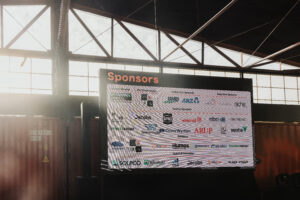
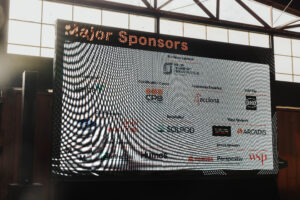
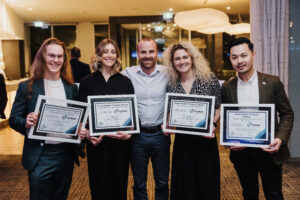
By working together with passion and purpose to advance sustainability in our sector, you gave everyone who took part the chance to make Connect 23 a true success, worthy of celebrating in style.
This year’s Certification Dinner awarded twenty IS Certifications to project teams from far and wide, each one representing tremendous achievements and demonstrating significant positive socio-cultural impacts and sustainable outcomes.
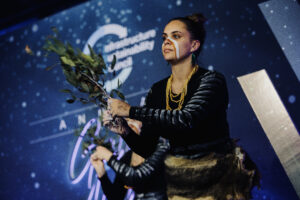
We took a closer look and further celebrated these achievements, impacts and outcomes as we concluded the conference and took a collective exhalation for our Gala Dinner and Awards event, which was a night with fantastic food and beverage, great company, camaraderie, and even a little comedy, courtesy of the night’s celebrity MC, Peter Helliar, who shared how inspired he was by his experience.
For many, the bestowing of an ancient traditional welcoming ceremony and blessing given by Mandy and the Djirri Djirri dancers was as much a highlight as the awards themselves, which celebrate exemplary achievements in infrastructure sustainability over a range of criteria and project phases. The awards evening celebrates the outstanding work of the award recipients, and gratefully recognises the efforts of our members and collaborators who drive so many transformational, community- and nature- positive projects which will leave a long lasting legacy of decades to come.
If you weren’t able to join us in Naarm in September, it’s our expectation that our thousand sustainable success stories from all corners of Australia and New Zealand went home, warrior-like, poised to share enthusiastically with intention and purpose in their workplaces and communities.
To see our sustainably fashionable sector at its most glamourous, click here !
And if you’ve got a case of FOMO from all you’ve read and seen, and you’re keen for your moment in the spotlight… there’s always next year. Those carbon targets aren’t going anywhere!
Now, to remind you of what you were part of, and as cues for those “What was great about Connect?” conversations we suggested before, here’s just a quick flyover of the Connect 23 program with a sprinkling of highlights from a reserve of hundreds.
We kicked off Connect bright and early with our Leadership Breakfast with a deep-dive into renewable energy generation and transmission then launched into (everyone-loves!-) ISAP Day featuring presentations on topics like…
- cultural advocacy in infrastructure
- IS Essentials case studies from Australia and NZ
- inspiring kids to become sustainability warriors
- how infrastructure projects are transforming lives in remote communities, and
- how goats might be the next big thing in your sustainability toolkit… to name a few.
There were panel Q&As with ISC assessors giving ISAPs the invaluable opportunity to ask the experts… anything, really. And all this before 3pm, when we set off on one of three fantastic field trips to:
- the future site of Toyota’s Hydrogen Centre,
- the National Transport Research Organisation and
- the Spark North East Link Project.
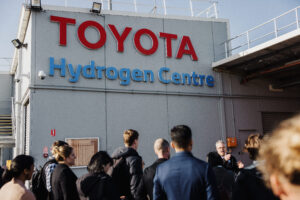
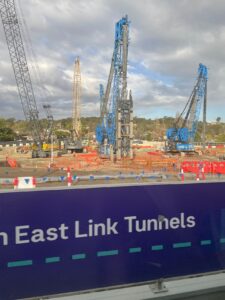
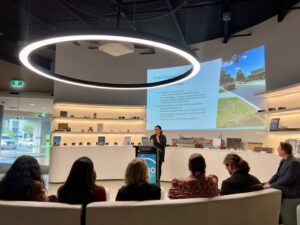
We launched Conference Days 1 and 2 with engaging keynotes from the Hon Cathering King MP, Duncan Elliott and Josh Bull MP who shared inisghts into the current infrastructure pipelines. Heard from, Marcia Langton and Michael Bissell who shared their insights on indigenous engagement and inclusivity, and from David Knoff, Australian Antarctic station leader and author, whose “537 Days of Winter”, when he was stranded, as the pandemic raged around the world, was a remarkable tale of resilience, inspiration and motivation. The myriad of opportunities to learn and connect on these two core days of presentations, breakout sessions and working groups.
There were many more noteworthy sessions than we’ve touched on here, with sustainability-related topics running the gamut from AI to Zincalume and everything between, including circularity, decarbonization, nature positivity, Net Zero… and beyond. And the best part… you can find full recordings of all sessions from Connect 23, to inspire and celebrate our continued collaboration, here.
And that… is a wrap!
Click here to watch the session recordings
We look forward to seeing you next year!
#staytuned #iscconnect24 #savethedate

